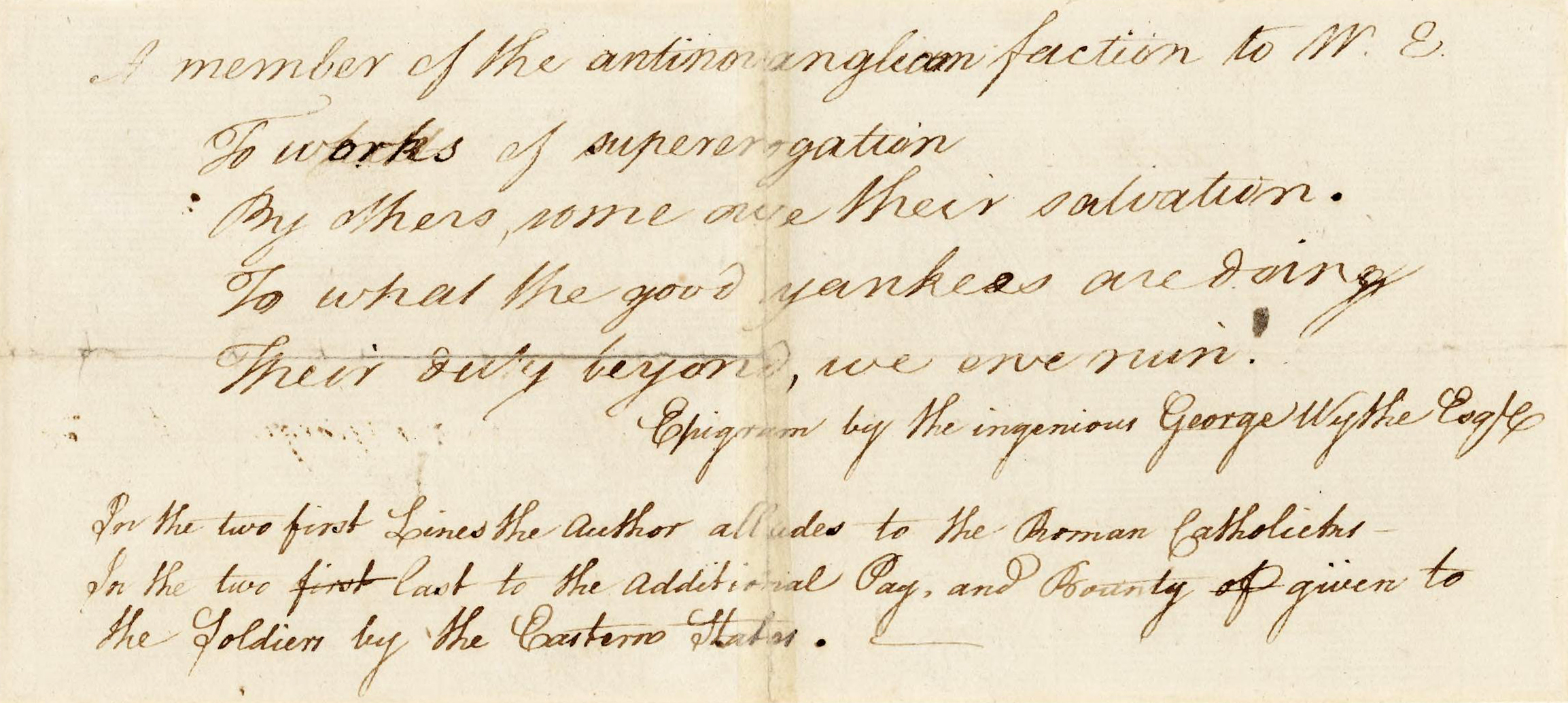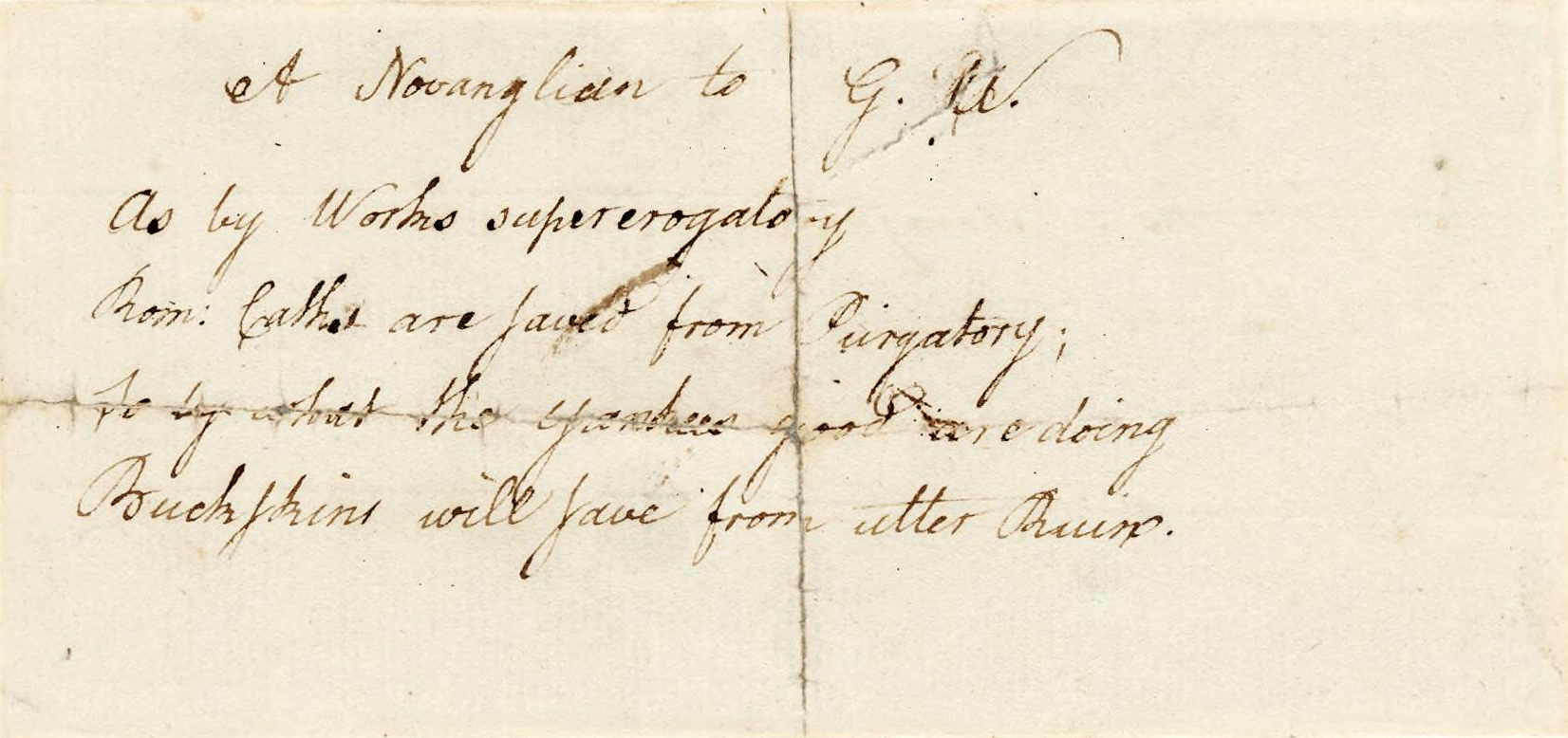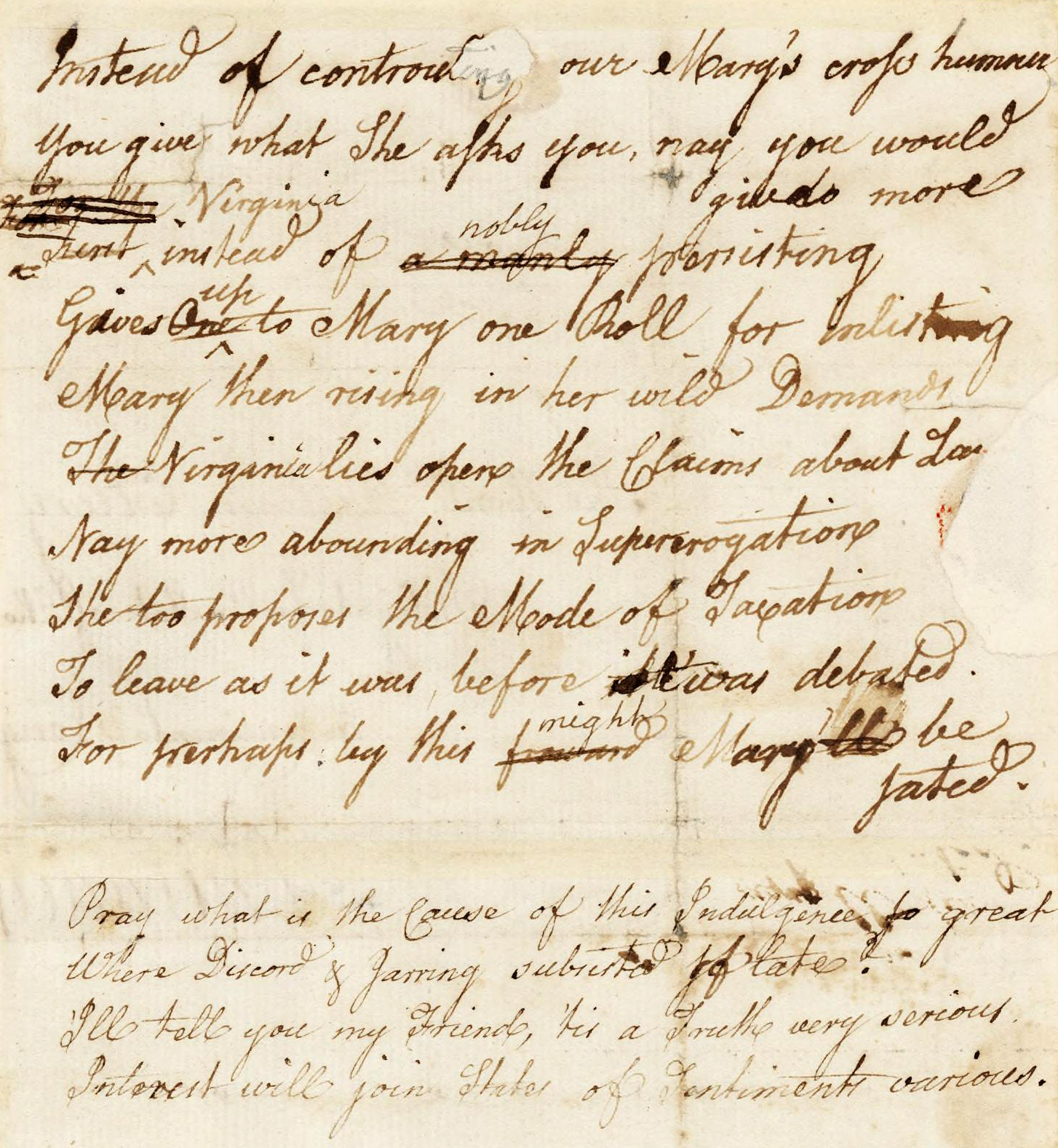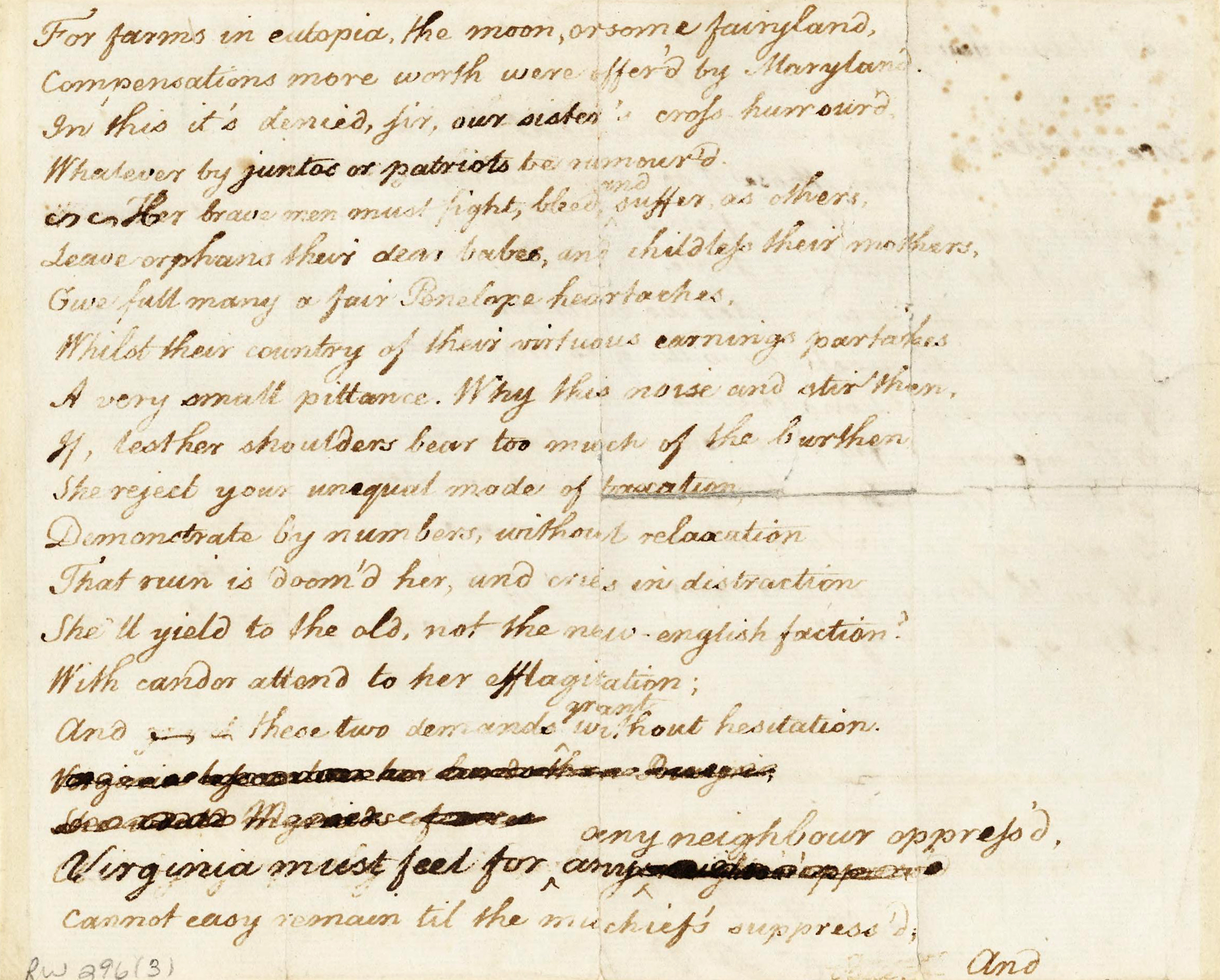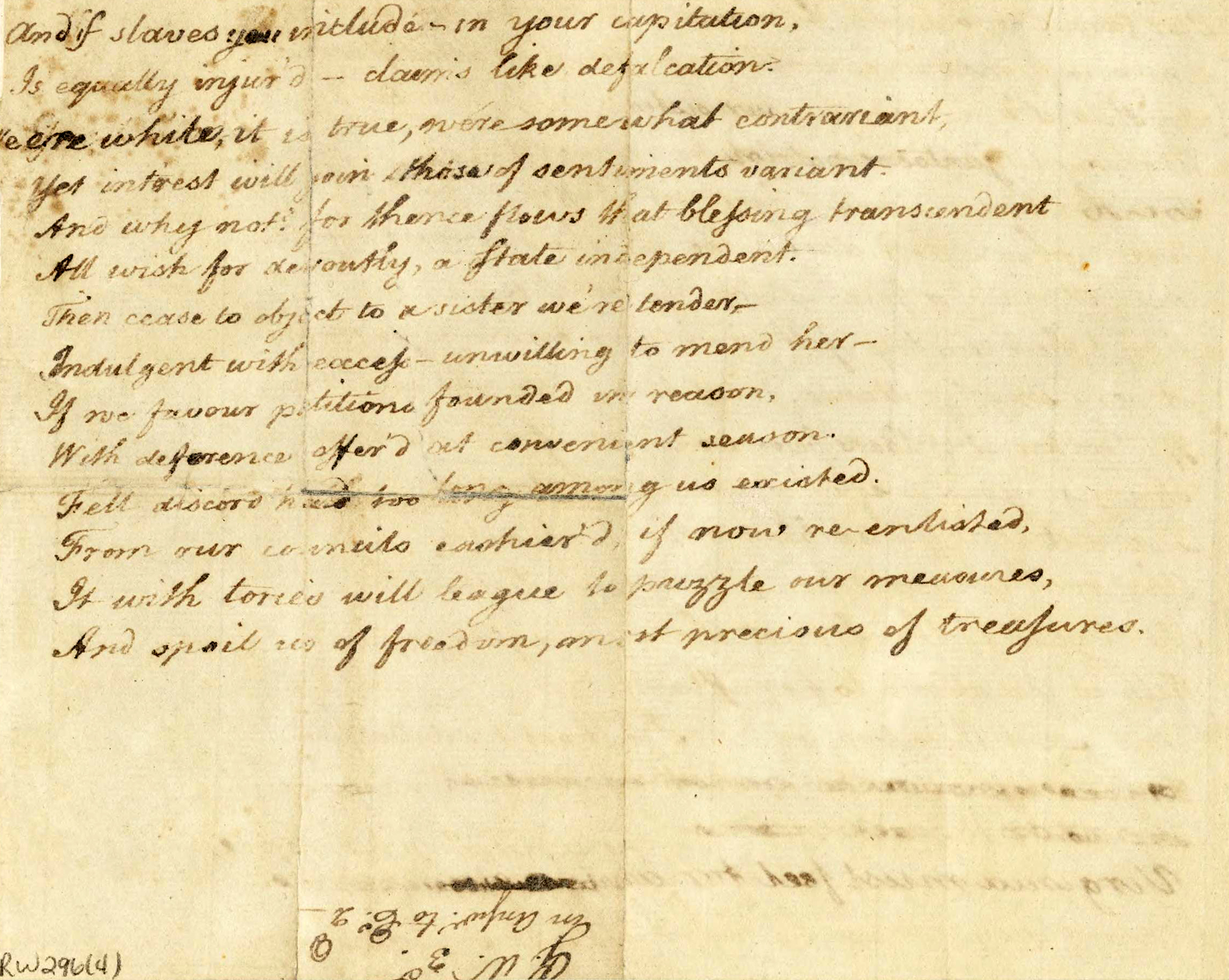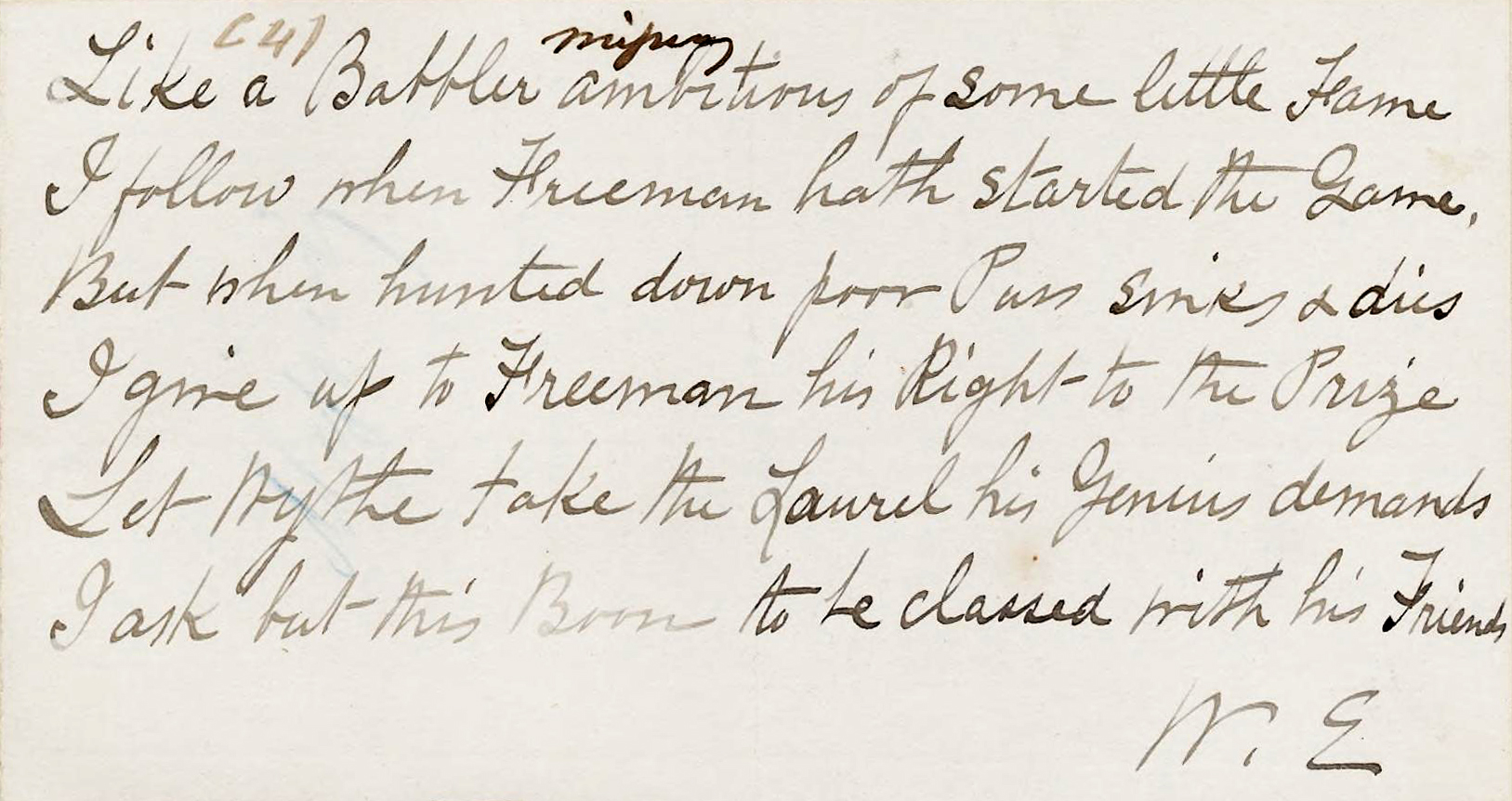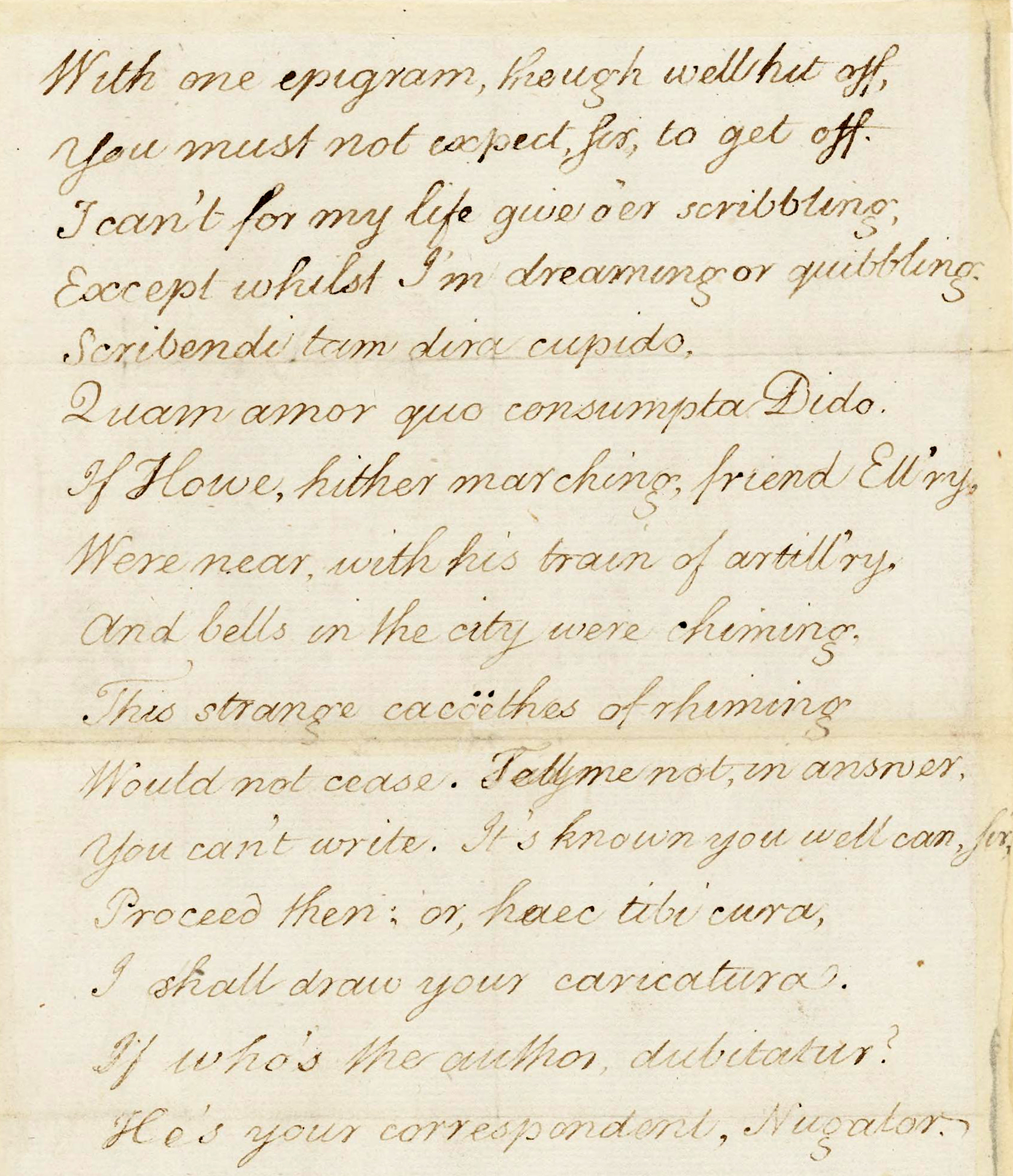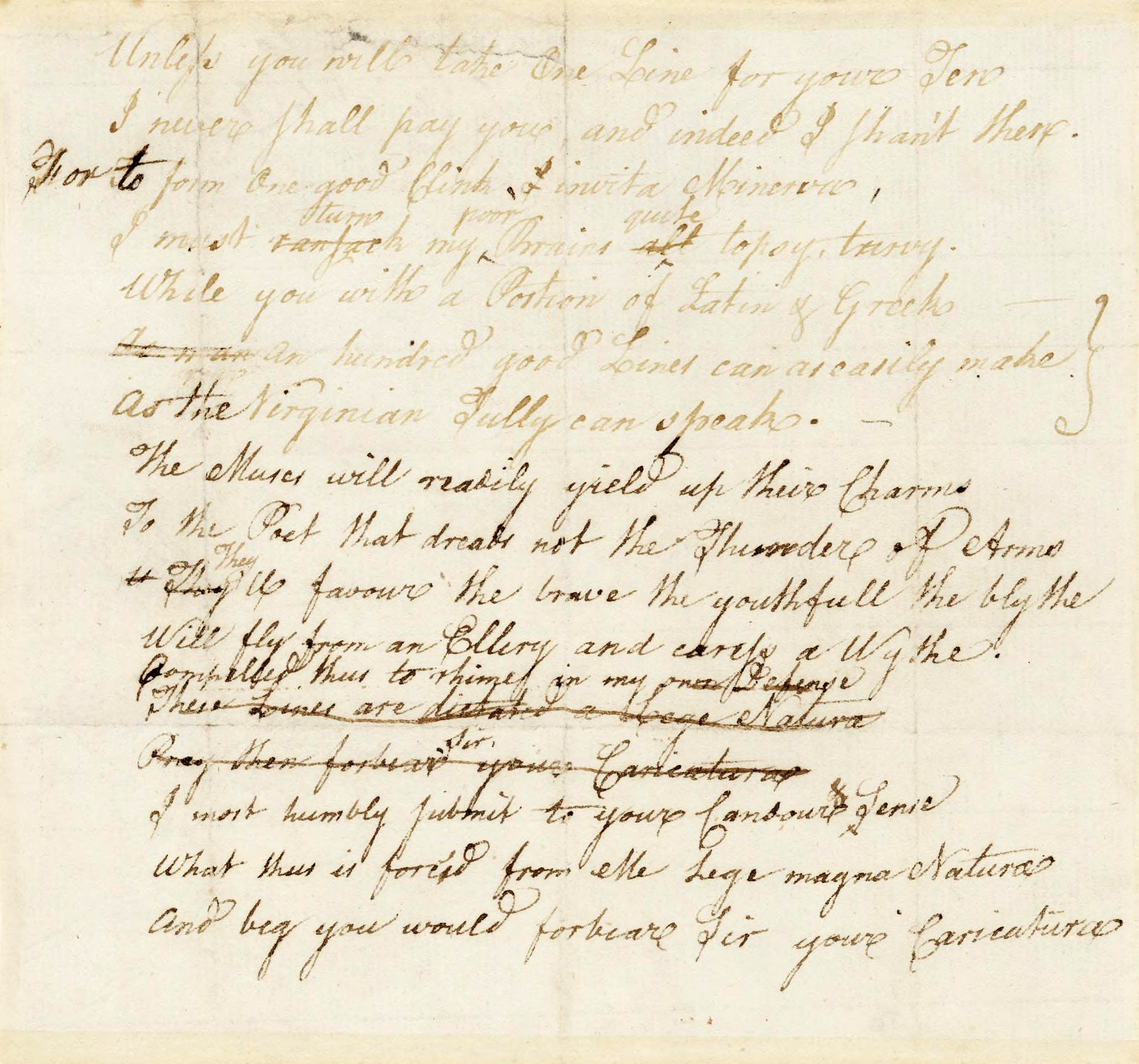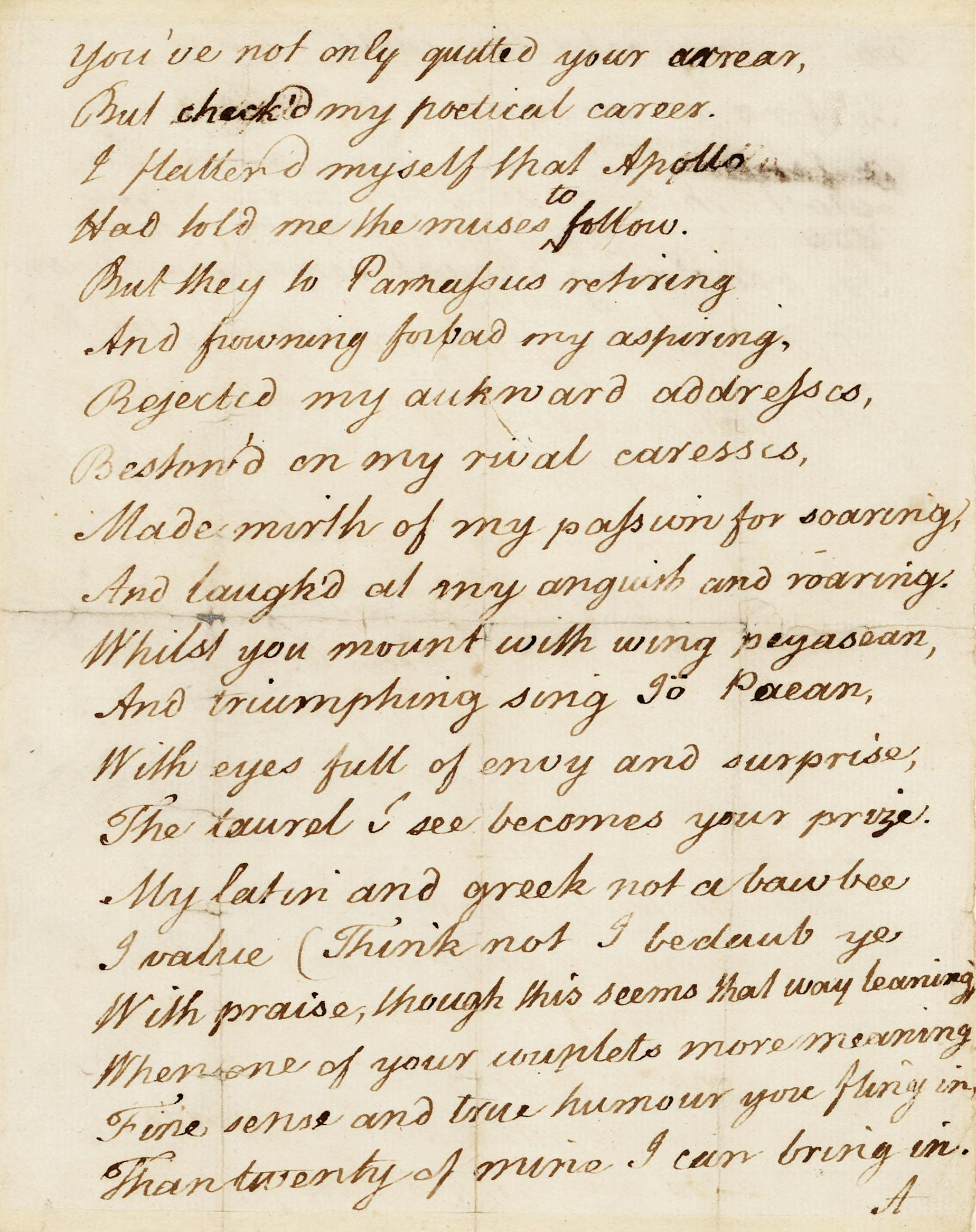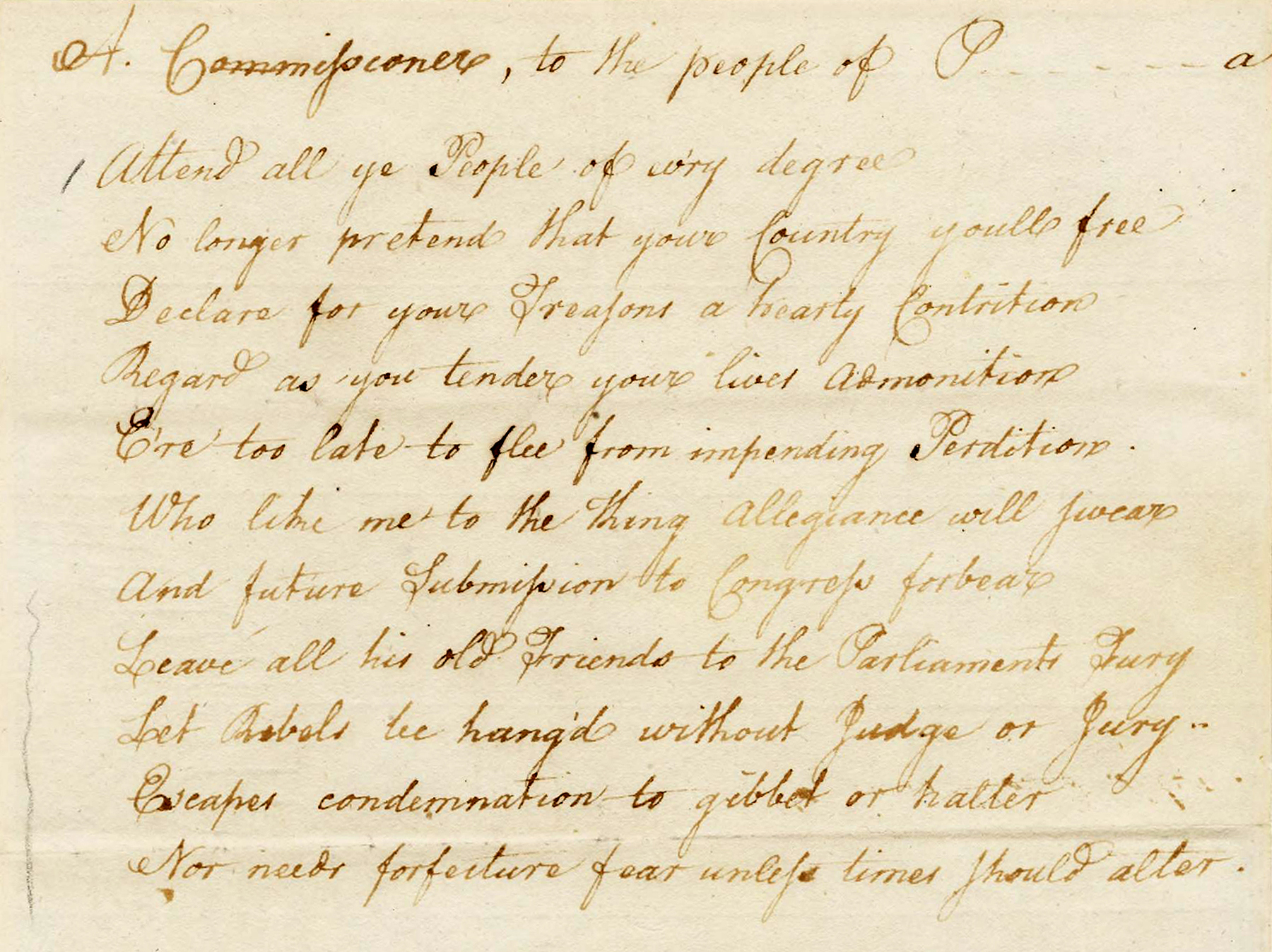Difference between revisions of "Poems on Witty Subjects in Congress"
(→"You've Not only Quitted Your Arrear," by George Wythe) |
|||
| Line 202: | Line 202: | ||
I flatter'd myself that Apollo<br /> | I flatter'd myself that Apollo<br /> | ||
Had told me the Muses to follow.<br /> | Had told me the Muses to follow.<br /> | ||
| − | But they | + | But they to Parnassus retiring<br /> |
| − | And frowning | + | And frowning forbade my aspiring,<br /> |
Rejected my awkward addresses,<br /> | Rejected my awkward addresses,<br /> | ||
Bestow'd on my rival caresses,<br /> | Bestow'd on my rival caresses,<br /> | ||
| Line 209: | Line 209: | ||
And laugh'd at my anguish and roaring.<br /> | And laugh'd at my anguish and roaring.<br /> | ||
Whilst you mount with wing Pegasean<br /> | Whilst you mount with wing Pegasean<br /> | ||
| − | And, triumphing, sing Io Paean,<br /> | + | And, triumphing, sing Io Paean,<ref>Classical Greek cry of exultation or triumph, traditionally addressed to Apollo the healer.</ref><br /> |
With eyes full of envy and surprise,<br /> | With eyes full of envy and surprise,<br /> | ||
| − | The laurel, I see, becomes your prize. | + | The laurel, I see, becomes your prize.<br /> |
| + | My latin and greek not a bawbee<br /> | ||
| + | I value (Think not I bedaub ye<br /> | ||
| + | With praise, though this seems that way leaning)<br /> | ||
| + | When one of your couplets more meaning<br /> | ||
| + | Fine sense and true humour you fling in,<br /> | ||
| + | Than twenty of mine I can bring in. | ||
|} | |} | ||
Revision as of 08:35, 15 April 2014
George Wythe and Willam Ellery, "Poems on Witty Subjects in Congress," American Revolutionary War Manuscripts Collection, Boston Public Library, MS.Ch.E.8.31-33.[1]
Contents
- 1 Manuscript text, November-December 1776
- 1.1 "A Member of the Antinovanglian Faction to W. E.," by George Wythe (VA)
- 1.2 "A Novanglican to G.W.," by William Ellery (RI)
- 1.3 "Instead of Controlling Our Mary's Cross Humor," by William Ellery
- 1.4 "For Farms in Utopia, the Moon, or Some Fairyland," by George Wythe
- 1.5 "Epigram," by William Ellery
- 1.6 "Answer to Epigram," by George Wythe
- 1.7 "Unless You Will Take One Line for Your Ten," by William Ellery
- 1.8 "You've Not only Quitted Your Arrear," by George Wythe
- 1.9 "A Commissioner, to the People of Philadelphia," by William Ellery
- 2 See also
- 3 References
- 4 External links
Manuscript text, November-December 1776
"A Member of the Antinovanglian Faction to W. E.," by George Wythe (VA)
Page seven from Poems on Witty Subjects in Congress,] from the Boston Public Library's American Revolutionary War Manuscripts collection.
For the two first Lines the author alludes to the Roman Catholics— |
"A Novanglican to G.W.," by William Ellery (RI)
Page three from Poems on Witty Subjects in Congress, from the Boston Public Library's American Revolutionary War Manuscripts collection.
As by works supererogatory |
"Instead of Controlling Our Mary's Cross Humor," by William Ellery
Page five from Poems on Witty Subjects in Congress, from the Boston Public Library's American Revolutionary War Manuscripts collection.
|
Instead of controlling our Mary's cross humour |
"For Farms in Utopia, the Moon, or Some Fairyland," by George Wythe
Page nine from Poems on Witty Subjects in Congress, from the Boston Public Library's American Revolutionary War Manuscripts collection.
Page ten from Poems on Witty Subjects in Congress, from the Boston Public Library's American Revolutionary War Manuscripts collection.
|
For farms in Utopia, the moon, or some fairyland And
|
|
And if slaves you include in your capitation, |
"Epigram," by William Ellery
Page eleven from Poems on Witty Subjects in Congress, from the Boston Public Library's American Revolutionary War Manuscripts collection.
|
Like a Babbler ambitious of some little fame W. E.
|
"Answer to Epigram," by George Wythe
Page eleven from Poems on Witty Subjects in Congress, from the Boston Public Library's American Revolutionary War Manuscripts collection.
|
With one epigram, though well hit off, |
"Unless You Will Take One Line for Your Ten," by William Ellery
Page twenty-three from Poems on Witty Subjects in Congress, from the Boston Public Library's American Revolutionary War Manuscripts collection.
|
Unless you will take one Line for your Ten |
"You've Not only Quitted Your Arrear," by George Wythe
Page fifteen from Poems on Witty Subjects in Congress, from the Boston Public Library's American Revolutionary War Manuscripts collection.
|
You've not only quitted your arrear |
"A Commissioner, to the People of Philadelphia," by William Ellery
First page from Poems on Witty Subjects in Congress, from the Boston Public Library's American Revolutionary War Manuscripts collection.
Attend all ye People of wry degree |
See also
References
- ↑ See W. Edwin Hemphill, "George Wythe Courts the Muses," William and Mary Quarterly 3rd ser., 9, no. 3 (July 1952), 338-345.
- ↑ "Novanglian": New Englander.
- ↑ "Dire desire to write," paraphrase of Virgil, Aeneid, Book V, line 721.
- ↑ "The love which consumed Dido," Queen of Carthage.
- ↑ Ovid, Ex Ponto III, xxxvi.
- ↑ Jester, clown.
- ↑ Defy nature, literally "go against Minerva's will." Cicero, De Officiis, I, 31, 110.
- ↑ Wythe is a Virginian Cicero: [[wikipedia:Marcus Tullius Cicero|]].
- ↑ A great law of Nature.
- ↑ Classical Greek cry of exultation or triumph, traditionally addressed to Apollo the healer.
External links
- Boston Public Library, Special Collections.
- American Revolutionary War Manuscripts at the Boston Public Library, Internet Archive.
- Read these poems in the Internet Archive.
